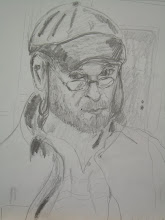Morelia, Michoacan, Mexico April 17, 2009
Morelia Part I:
Charming and Entertaining!
Morelia is a charming city. It has an attractive, sizable downtown area filled with World Heritage buildings, friendly and courteous people, fine cuisine and many free, high quality cultural events. Like Merida, Peubla and San Cristobol de las Casas, it's more beautiful, richer in culture, better organized and cleaner than you would expect. Everything comes together in a way that leaves you tranquil and culturally elevated.
Morelia is in the province of Michoacan, with a population of about 685,000. It sits at an altitude of 1920 meters (6300 feet) with an average daytime temperature of no more than 85F. Rain is infrequent; the skies are always blue. The downtown area has over 1000 colonial buildings and churches that are World Heritage designated. Cost of living compared to the US is about one half. Medical care is excellent and as affordable as is most everything else.
There are some concerns, of course. Recently a mayor who fired his police chief for corruption was assassinated, and there have been some attacks on police or army installations by drug traffickers. However, most of the violence in this province as elsewhere in Mexico is between competing drug trafficking gangs. Most of that occurs in non-public settings so safety is not effected. My other main concern is air quality. Pollution from cars and buses on main thoroughfares can be quite offensive. The constant breeze means the problem ends up somewhere else.
We arrived on in Mexico on March 24, 2009. At the bus station in Morelia you pay 35 pesos (currently at $13 pesos per $US- they use the $ symbol here too, in fact the word dollar comes from Spanish) at a desk inside the station for the taxi ride to town. There is no dispute about how much the ride costs, and there is no extra charge for an extra passenger or luggage, getting visitors off to a good start.
Peg found our place using the wireless internet in the $20US a night hotel in downtown Morelia. In less than two days we moved into an apartment run by the Baden-Powel Institute. BPI has about 7 apartments rented to students studying Spanish. There were plenty of spare apartments so they rented us one. We negotiated a discount from the weekly rate but still a lot more than we would pay for an apartment elsewhere in the city. Since we are going to be here a relatively short while, and since the rent includes all utilities, a cell phone, weekly maid service, a water purifier, cable TV with lots of subtitled movies and other English language programs, wireless internet and a very convenient location in the historic center, it makes sense to pay a bit extra. So far it's worked out very well, although our first apartment was a bit noisy being right on the street. Now we are on the second floor, it quiet, less dusty and we are not bothered by automobile fumes.
One of the many beautiful buildings in downtown Morelia showing tyical stonework
Since we arrived we've seen 1) a two-day outdoor weekend international folk dance festival with participants from 7 or 8 Latin American countries, 2) an outdoor production bu a modern dance troupe 3) an excellent outdoor production of Jesus Christ Superstar, and, 4) the first three of four evening performances of the 19th Annual International Guitar Festival and competition. Total cost to us: $0.
There is also live music at many of the bars. One night we saw a very good belly dance performance by 3 women at a restaurant; one of them also did a few flamenco dances. Our total bill for a very good meal, 2 beers each included, was $42US. That's for four people, not two. That's about as expensive as it gets here.



